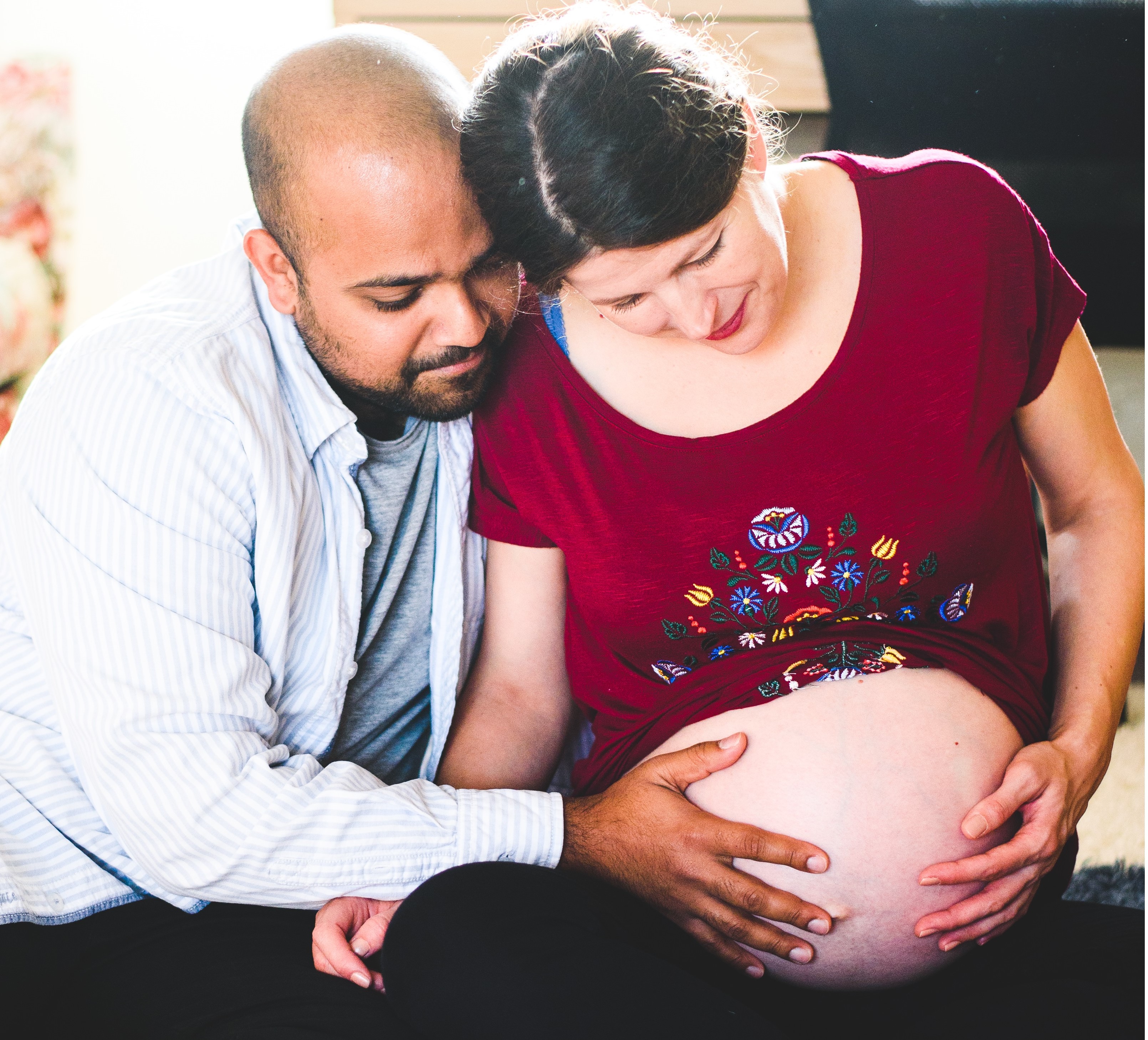Peep Antenatal Programme and Policy Links - Scotland
The Peep Antenatal Programme (‘Getting to know your baby’) aims to support parents to:
- think about their baby, tune in to their baby's feelings and respond sensitively (also known as reflective function),
- understand the importance of sensitive parenting to developing a loving, consistent and secure attachment,
- become more aware of the social and emotional aspects of the transition to parenthood,
- manage their own (sometimes difficult) feelings that are aroused by a new baby,
- meet other expectant or new parents and develop a supportive network group,
- reduce the risk to the early parent–infant relationship (by helping to prevent, for example, isolation, anxiety and low-level depression),
- engage with other local services.
This helps parent-baby bonding and attachment. Research indicates that these strong relationships enhance parents' confidence and self-esteem, as well as contributing to better outcomes for the child.
‘I didn’t realise my baby would be able to hear when he was born…’ (Dad)
The following policies cover attachment, the impact of parenthood, social connectedness, community cohesion, mental health and wellbeing, and child protection.
The United Nations Convention on the Rights of the Child (UNCRC) was ratified in the UK in 1991 and the Scottish Government are taking steps to ensure that children’s rights are respected as stipulated in the UNCRC. The First Minister committed in April this year, to incorporate the UN Convention on the Rights of the Child (UNCRC) into Scots law. This incorporation has the potential to bring a real culture shift and positive impact on families throughout Scotland.
The Peep Antenatal Programme reconciles several articles within the UNCRC including the right to play (article 31) and the right to learn (article 13).
Getting it right for every child (GIRFEC) is the national approach to supporting families in Scotland and is based on the values and principles which support the rights of children and of parents. The GIRFEC approach underpins all Scottish Government policies which support children and their families from the antenatal period, throughout childhood and the teenage years. GIRFEC promotes early intervention and working in partnership with families to identify what supports may be required.
The Peep Antenatal Programme (also known as ‘Getting to know your baby’) is a preventative/ early intervention approach which empowers parents by sharing research and best practice with parents in a very gentle and accessible way. The unborn child and newborn are at the heart of the programme, which recognises and values the incredible impact that sensitive parenting offers to child development, wellbeing and long term outcomes. The Peep Antenatal Programme can be delivered universally by a range of practitioners, and to higher-need parents with specialist guidance.
The Children and Young People (Scot) Act 2014 has children and young people at its heart in rights respecting service planning and delivery, with an ambitious aim to make Scotland the best place to grow up.
The Peep Antenatal Programme provides knowledge and skills for practitioners to work closely with families, sharing an understanding of their home environment and their social network in preparation for a newborn joining their world. Meaningful and effective messages are shared in an informal, welcoming group, accessible to all and specifically recognising the challenges which marginalised groups may face.
Better Health, Better Care (2007) and the Early Years Framework (2009) highlight the fundamental importance of early years experiences and emphasise the role of antenatal care. The Better Health Better Care Action Plan identifies that children who live in families where parental capacity is high and who have strong family and social networks often go on to enjoy better outcomes in later life. Better Health, Better Care is committed to strengthening “antenatal care to better engage with parents with higher needs…”
The Peep Antenatal Programme supports parents perinatally to consider babies' feelings and behaviour in order to respond appropriately and sensitively – essentially to keep baby in mind in order to promote healthy bonding and attachment.
The Early Years Framework (2009) reflects the Scottish Government's ambition for Scotland to be “the best place in the world to grow up, by reducing inequalities and improving outcomes for all babies, children, mothers, fathers and families across Scotland to ensure that all children have the best start in life and are ready to succeed”.
The Peep Antenatal Programme considers the social and emotional transitions which parenthood brings, and supports mothers, fathers and partners to become involved and meet other expectant families. Difficult feelings may be elicited by pregnancy and birth, and the programme provides a network for support and connections to local services and agencies.
The National Parenting Strategy (2012) states:
“The nurturant qualities of the environments where children grow up, live and learn - parents, caregivers, family and community – will have the most significant impact on their development,” and identifies that positive generational impact may be realised if we “… help parents lay strong foundations for the loving, nurturing relationships that we know are integral to children’s emotional, physical, socioeconomic and educational wellbeing”.
The Peep Antenatal Programme encourages and provides space and opportunity for parents to think about their child’s development and how they can nurture a strong bond before birth. Positive parenting is a basic human right of every child (UNCRC) and through the Peep Antenatal Programme we explore and learn how to ensure an “atmosphere of happiness, love and understanding” from the very earliest moments.
The National Parenting Strategy recognises the impact which access to appropriate, timely and person-centred support may have on new parents and their children.
The Peep Antenatal Programme's focus on the parent/baby bond, connectedness and developing attachment, can reduce risk to the early parent-newborn relationship, lessens social isolation, enhances parental self-esteem and confidence, and creates a supportive network, all contributing to this early intervention, strengths-based approach.
